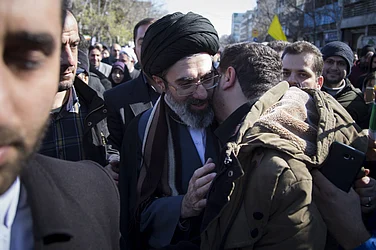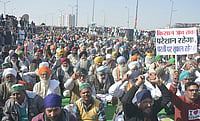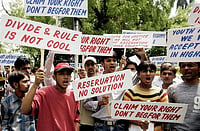Judges in Iran have diagnosed three well-known actresses with mental illness and antisocial personality disorder for not wearing hijab in public, according to reports.
The three actresses have been convicted in separate judgements in the past one month for not wearing hijab and have been handed varied sentences.
Women in Iran are required by law to cover their heads in public by an Islamic head-covering called hijab. The hijab law was introduced after the Islamic Revolution of 1979 in which the conservative Islamic clergy overthrew the liberal, pro-West monarchy and established a conservative state under the Supreme Leader of Iran.
The three actresses diagnosed as mentally ill are Azadeh Samadi, Leila Bolukat, and Afsaneh Bayegan. Their diagnosis has led to criticism from Iran's psychiatrists, who have said that just like a doctor —not a judge— diagnoses other diseases, diagnosis of a mental disease or disorder is the domain of psychiatrists, not judges.
The actresses Samadi, Bolukat, and Bayegan are among several in the Iranian acting and art community who have been punished in recent months by the Iranian regime for either defying the hijab rule or supporting the protests after Mahsa Amini's death. Amini, 22, died last year in the custody of Iran's morality police, a force that enforces the hijab rule. She was out with her brother at the time she was detained for an alleged violation of the hijab rule.
Amini's death triggered monthlong nationwide protests that became the biggest challenge to the Iranian regime in years. In the women-led protests, women often participated bare-haired, took off their hijabs and burnt them, cut their hair, and directly challenged the Revolution.
Though the protests have largely died down in recent months, individual acts of resistance have continued, and the Iranian regime has redeployed the morality police and has introduced more surveillance to crack down on any dissenters. Throughout these months of protests, several prominent Iranians, such as sportspersons and actors, have deified the hijab law and have expressed solidarity with the protesters.
What did the judges say about the convicted actors?
The judges in separate judgements diagnosed actresses Samadi, Bolukat, and Bayegan as mentally ill, anti-family, and anti-social, according to Radio Free Europe/Radio Liberty (RFE/RL).
As part of their sentences and diagnosis, they will be 'treated' in state institutions. The psychiatrists' bodies in Iran have said such decisions are not in the Judiciary's domain. The RFE/RL reports that heads of four psychiatry boards said: "The diagnosis of mental disorders is within the competence of a psychiatrist, not a judge. Just as the diagnosis of other diseases is in the competence of doctors, not judges."
"The addition of mental health diagnoses of 'antisocial and anti-family' behavior alongside the women's sentencing, requiring regular psychological treatment and certifications of good mental health were judgments that the top psychiatrists say the courts were not qualified to make," reported RFE/RL.
What were the actresses convicted of?
At various points, the three actresses Azadeh Samadi, Leila Bolukat, and Afsaneh Bayegan appeared in public without hijab and were convicted for it.
In the aftermath of Amini's death and nationwide protests, several women began to go about their lives without wearing hijabs and several prominent personalities, including sportswomen and actors, took off their hijab in solidarity with the street protests. Now the Iranian regime is going after them.
Samadi, 44, was detained for wearing a hat and not a hijab at a funeral. In addition to diagnosing her as mentally ill, she was denied access to her phone for six months and all her social media accounts were ordered disabled, reported RFE/RL. She was given prison time.
Iran International reported that Samadi was also sentenced to counseling sessions at "an official counseling center to cure her anti-social personality disorder". Such rulings are not uncommon. The outlet reported that a court in Tehran in a separate judgement sentenced another woman to two months of prison and six months of treatment for "contagious psychological disorder that causes sexual promiscuity", and a ban on traveling abroad. This woman was also convicted over the hijab law.
Bolukat, 42, was sentenced to four months in a remote prison, was banned from acting, and was banned from using social media for two years for posting photos on social media without hijab. She was also handed a travel ban.
The charges against Bolukat were "damaging public morality and chastity through removing [her] hijab and publishing photos of it on her personal accounts on social media accounts".
Bayegan, 61, was convicted after she appeared in a film ceremony without hijab.
Bayegan was given a suspended two-year prison sentence and was ordered to make weekly visits to a psychological center "to treat the mental disorder of having an anti-family personality", and to submit a health certificate after her treatment, reported Voice of America (VOA News). She was also tasked with the translation of a book.
The judgement also bans Bayegan from social media and leaving the country for two years, said the VOA report.
Notably, Bayegan had also supported the protests after Amini's death.






















